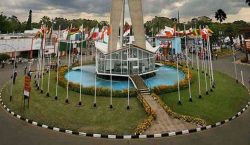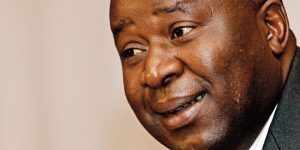

The South Africa (SA) government will likely have to commit to restoring the public finances to health and implementing reforms to boost the economic growth rate as it negotiates with the International Monetary Fund (IMF) over a $4,2bn (R72,6bn) loan that would help to plug SA’s enormous fiscal hole.

Finance Minister Tito Mboweni
Dire budget numbers that Finance minister Tito Mboweni presented on Wednesday showed the government’s funding requirement this year has ballooned to R777bn — more than double February’s budget forecast.
But it confirmed it plans to raise more than $7bn of this from international financial institutions including the IMF, which has so far provided Covid-related emergency financing worth about $65bn to 74 countries.
And while the market has welcomed SA’s plans to tap international funding this year, there are growing concerns about its ability to fund itself in coming years amid widespread scepticism about Mboweni’s ability to deliver the massive spending cuts he said would be needed to stabilise the government debt and prevent a sovereign debt crisis within three years.
Rating agency Moody’s said in a report last week that the rise in the government’s debt burden, to 82 percent this year, was among the highest in its ratings peer group and “stabilising debt by 2023 in line with the government’s target laid out in this budget will be very difficult to achieve given the challenging growth outlook and fiscal rigidities”.
Rival Fitch was more blunt, saying on Friday: “The South African government’s intention to stabilise debt levels within four years, as set out in this week’s emergency budget, is unlikely to be achieved.”
Fitch pointed to SA’s persistent challenges in reducing government spending, boosting growth and insulating its public finances from struggling state-owned enterprises, as well as the impact of the Covid pandemic.
Mboweni had said in April that SA would approach the IMF to draw the $4,2bn to which it was entitled under the Fund’s Rapid Financing Instrument (RFI), which is designed to assist middle-income countries affected by the Covid crisis.
This was a big move for SA, which historically has avoided IMF lending because of the conditions the fund has tended to impose. But the RFI comes with significantly less conditionality than the typical IMF structural adjustment bailout programmes, and the ANC conceded last month that it would support the government’s application.
SA also intends to source funding from the World Bank and African Development Bank as well as the New Development Bank (formerly the Brics Development Bank), which last week approved a $1bn Covid-19 emergency programme loan to SA and could make available up to $1,5bn more.
Mboweni told journalists recently that the IMF and Treasury were in “protracted” negotiations over the loan, which is expected to be finalised only next month.
“The discussions are tough and difficult but I think we might have come to a common understanding,” Mboweni said. He emphasised that the ANC leadership supported the approach, as long as nothing was done to undermine SA’s national sovereignty.
He did not reveal what was at issue in the talks with the IMF. But sources close to the process indicate that this would involve the letter of intent that countries have to submit to the IMF to motivate their applications for the fund’s emergency finance packages.
Generally, countries have had to commit in such letters to put measures in place to stabilise their public debt and to reform their economies to boost growth coming out of the crisis — though the IMF, which disburses all the funding upfront for its emergency facilities, has no mechanism to enforce these conditions as it does with structural adjustment programmes.
Sanlam Investments chief economist Arthur Kamp said the funding the government had to raise this year was more than SA’s entire 2019 domestic savings flow of R740bn. — Business Live